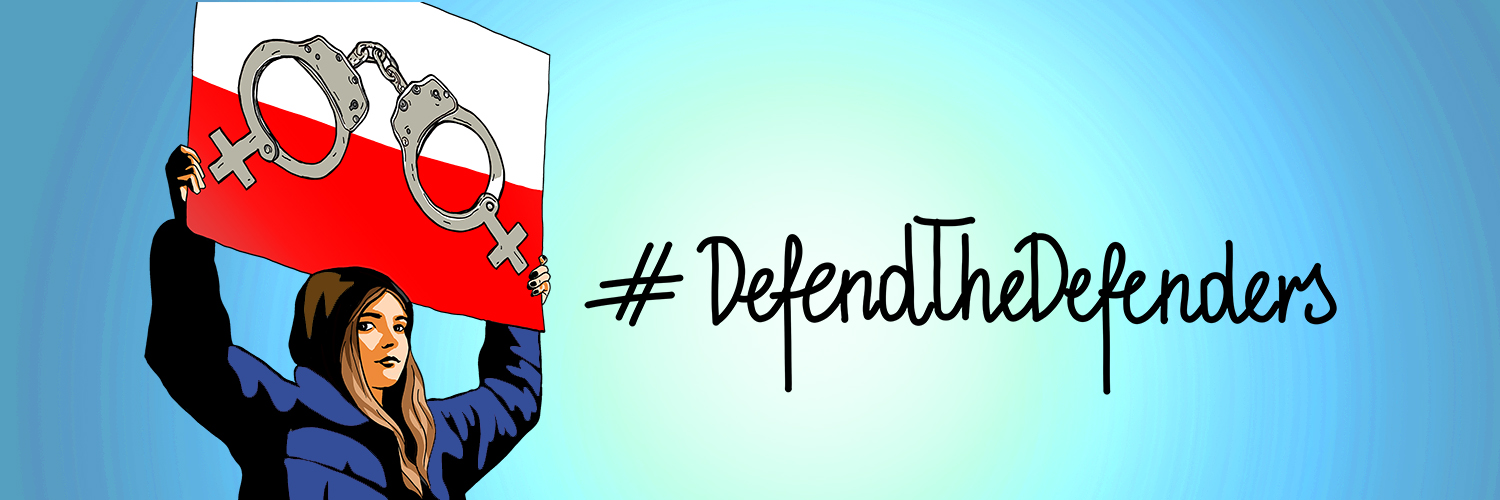Latest press releases
A selection of stories from across the Federation

Netherlands
Rutgers triumphs in landmark court case against lies, online hate and disinformation
Rutgers, the Netherlands’ leading sexual and reproductive health expert and IPPF’s Member Association, has today secured a landmark legal win against an ultra-conservative group.
For media enquiries


| 01 November 2022
Women’s rights defenders face eight years in prison
Three leading women’s rights defenders are facing eight years in prison in Poland for exercising their right to peaceful protest. Prosecutors in Warsaw filed the indictment against Marta Lempart, Klementyna Suchanow and Agnieszka Czerederecka-Fabin of the All-Poland Women’s Strike (Ogólnopolski Strajk Kobiet, OSK), a partner of the International Planned Parenthood Federation, European Network, for allegedly organizing protests during the COVID-19 pandemic. Massive protests were prompted back in October 2020 by the decision of the illegally appointed Constitutional Tribunal to impose a near-total ban on abortion care. Peaceful protesters were met with excessive force, with authorities using tear gas, pepper spray and physical assault. Now, two years on, women human rights defenders (WHRDs) are still being attacked by Polish authorities, with defenders facing violence from law enforcement and far-right groups, including bomb threats, as well as smear campaigns in state-controlled media, detention and excessive criminal charges orchestrated and encouraged by the government. In the case of the All-Poland’s women’s strike members, these charges include “causing an epidemiological threat”, endangering public health and publicly praising crimes. The new indictment against the women’s rights defenders came just days before the second anniversary of the near-total ban on abortion, which has killed six women so far. It also comes in the same month that a court hearing was held in the trial of Justyna Wydrzyńska. Justyna, a member of Abortion Without Borders and the Abortion Dream Team, is facing up to three years in prison for facilitating an abortion that didn’t happen. Her case marks the first in Europe where a WHRD is being prosecuted for helping ensure abortion care by providing abortion pills. Justyna’s trial is ongoing. Irene Donadio of the International Planned Parenthood Federation, European Network, said:

| 09 March 2022
Statement on the Guatemalan law on 'Protection of the Life and the Family'
On International Women's Day 2022, Guatemala's Congress passed a law which triples the prison sentences for women seeking abortion care, prohibits same-sex marriage and further bans the teaching of comprehensive sexuality education and sexual diversity in schools, saying that teaching "anything other than heterosexuality is normal" is against the law. The "Life and Family Protection Law" was passed by an overwhelming majority of 160 - 8 in the conservative-led Congress, but still needs to be signed by Guatemala's president, Alejandro Giammattei, in order to come into force. Under the new law, women who "have induced their own abortion or given their consent to another person to carry it out" will face a minimum of five years in jail, but the sentences could reach a maximum of 25 years. Abortion is illegal in Guatemala except in cases where the woman's life is at risk. This law is the latest of a series of laws to attack human rights across the country, including gender equality and sexual and reproductive health and rights. The initiative goes against human rights agreements, especially for women and LGBTI+ people and condemns and denies the diversity of families including mono-parental homes. Eugenia Lopez Uribe, IPPF's Regional Director for Americas and the Caribbean Region, said: "It is disturbing that on International Women's Day 2022, the Guatemalan Congress passed a law that completely violates the human, sexual and reproductive rights of women, girls and marginalized people. "While countries across Latin America were celebrating the lives and rights of women, Guatemala has chosen to criminalize those making the best decision for themselves and their families, while also risking imprisoning vulnerable women and girls who have experienced sexual violence or suffered pregnancy loss. By severely limiting access to safe and post-abortion care, the law will undoubtedly lead to an increase in unsafe abortions and a decrease in prenatal care, resulting in life-long disabilities for some women and a rise in maternal deaths. "At the same time, by prohibiting same-sex marriage, limiting comprehensive sexuality education and enabling the discrimination of sexual diversity, the Guatemalan government is creating a society that fosters miseducation, stigma, intolerance and homophobia and fuelling the persecution of LGBTI and non-binary people. "IPPF strongly condemns the passing of this archaic law and demands that the Guatemalan government fulfils international human rights agreements. We stand in solidarity with affected people across Guatemala and the organizations working tirelessly to ensure that all people have the freedom to make their own choices." For media enquiries, please contact Karmen Ivey on [email protected] or [email protected]
















